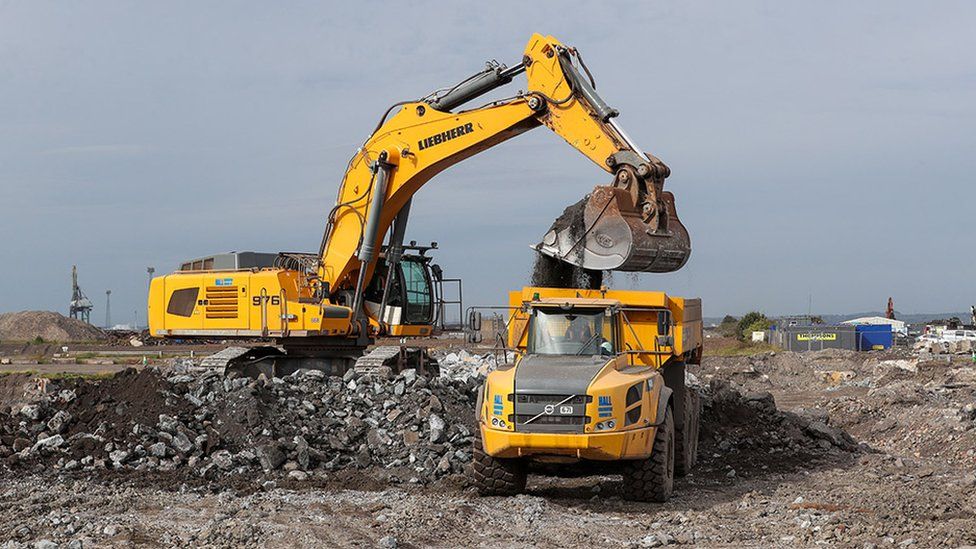Net Zero Teesside: Work starts on low-carbon natural gas power station
- Published

Work has begun on a project at a former steelworks aimed at reducing the UK's carbon dioxide emissions.
A BP-led group plans to build the world's first natural gas power station on the old Redcar blast furnace site, providing enough low-carbon electricity to power up to 1.3 million homes.
There are also proposals to capture the carbon dioxide produced and store it under the North Sea.
BP vice president Andy Lane said the facilities would cost about £1.5bn.
"Decarbonising the power sector in the UK is absolutely vital as we try and move the country towards net zero by 2050," he said.
The Net Zero Teesside (NZT) Power scheme is a partnership between energy companies BP and Equinor, and the Teesworks industrial zone.
Teesworks chief executive Martin Corney said the project "pioneers" low carbon industry "on our doorstep".
Tees Valley Combined Authority said the power station could create up to 4,000 jobs and add up to £300m to the economy per year.
The authority said up to two million tonnes of emissions from the power station, which would otherwise be released into the atmosphere, would be captured each year.
They would be permanently stored under the North Sea, along with emissions from the Teesworks site's other industries, it said.
Tees Valley Mayor Ben Houchen said the plan was to build an economy "that's going to create thousands of jobs" but was also going to last for the next 50 to 100 years.
"That's the most important thing because, for too long, Teesside has been on the up and down, businesses have come and gone in quick succession," he said.
"This is about having a good, long-term plan for the local economy."
A final investment decision will be taken in 2024 and, if agreed, commercial operations could start in 2027.
Follow BBC North East & Cumbria on Twitter, Facebook and Instagram. Send your story ideas to [email protected].
- Published3 June 2023
- Published31 March 2023
- Published30 March 2023
- Published4 March 2023
- Published14 January 2023